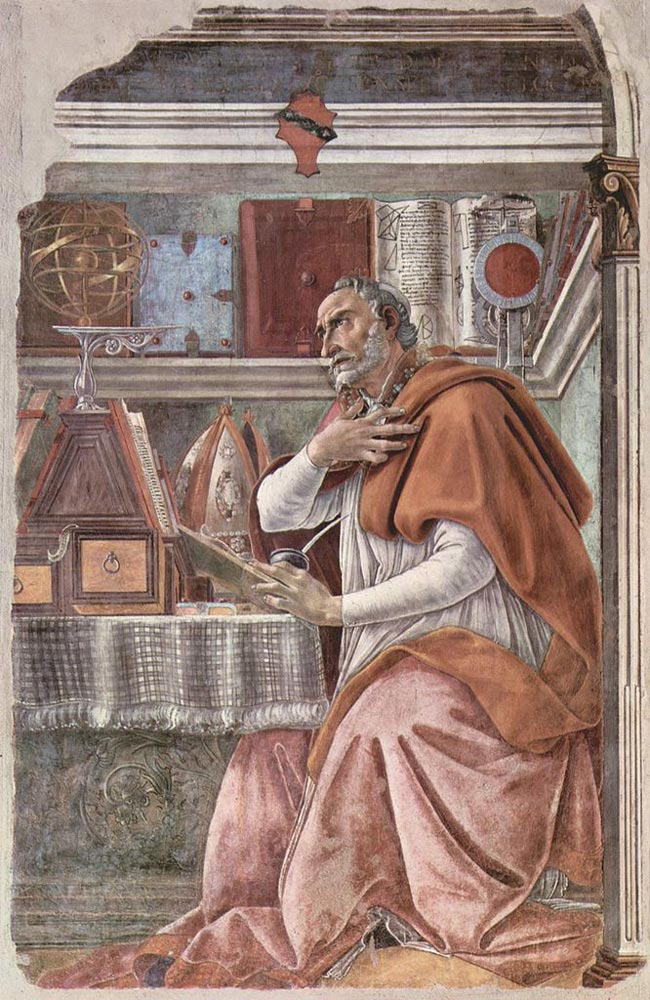| Saint Augustine | |
|---|---|
 |
|
| Artist | Botticelli |
| Year | 1480 |
| Medium | Fresco |
| Location | Church of Ognissanti in Florence, Italy |
| Dimensions | 60 in × 44 in |
| 152 cm × 112 cm | |
| Famous Paintings by Botticelli | |
| Fortitude | |
| Adoration of the Magi | |
| The Birth of Venus | |
| Primavera | |
| Cestello Annunciation | |
| Saint Augustine | |
| Venus and Mars | |
| The Mystical Nativity | |
| Temptations of Christ | |
| Complete Works |
Botticelli’s painting known as St. Augustine in His Study is a fresco, and it was his first major work in that medium. The well-known patrons of the Vespucci family requested the painting in the year 1480, and Botticelli placed and completed the work in the French Church of Ognissanti.
What is the Painting About?
The portrayal of Augustine shows him in contemplation in his study, surrounded by books and other objects meant to show his connections to and profound interest in the new humanistic philosophy. The saint is depicted in deep thought, but he is looking heavenward in a standard pose for religious figures, demonstrating that the new ideas were being tempered by his personal relationship with God.
How Was It Painted?
The composition follows a traditional layout, with Augustine’s face near the center of the frame, and it possesses a pleasing asymmetry in the placement of his body to the right. It also features an interesting use of parallel horizontal lines and vertical elements. The colors of the skin and clothing are remarkably brilliant, and contrast well with the silvery and gray palette of the tablecloth, walls, and shelves behind him.